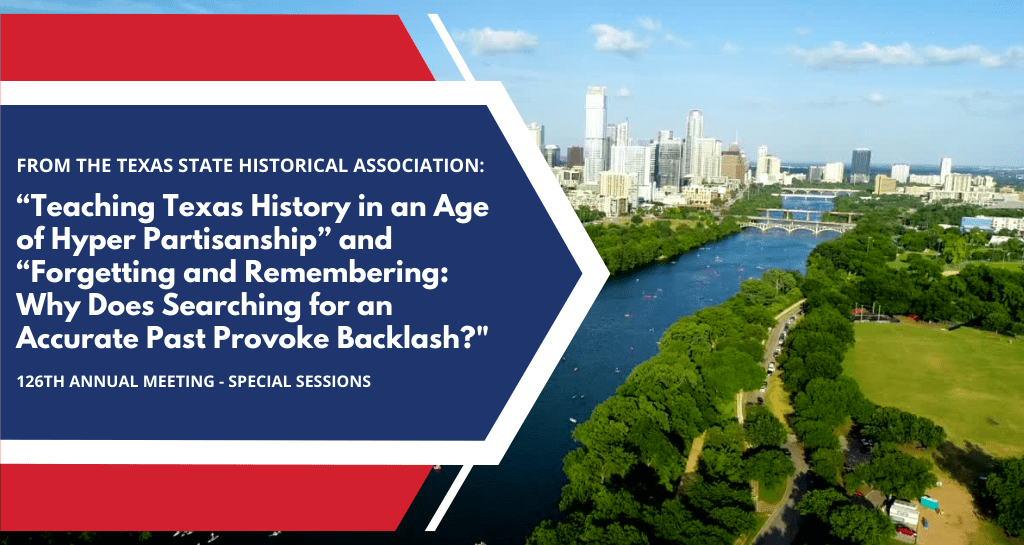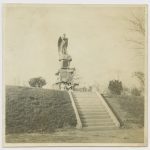
Editor’s Note: If you have questions you would like answered at the live Q&A sessions on February 25th, please submit them here.
These two panel discussions, “Teaching Texas History in an Age of Hyper Partisanship” and “Forgetting and Remembering: Why Does Searching for an Accurate Past Provoke Backlash?”, were recorded by the Texas State Historical Association (TSHA) in late January 2022.
The TSHA was formed on the University of Texas at Austin campus in February 1897 and has been meeting annually about that time ever since. Under the guidance of George P. Garrison, for whom the building that houses the Department of History at UT is named, the TSHA gathered together women and men dedicated to preserving and promoting the history of Texas.
In 2021 the TSHA was compelled to meet virtually, but we still held our approximately forty sessions online, and continued our robust discussion. This year, 2022, we are able to meet in-person at the AT&T Center on the UT campus on February 24-26. Yet we learned something from our online experience. If you record sessions and make them available online, interested viewers can watch them at their own pace and reflect on what has been said in a less rushed way than a typical busy conference permits. For this reason, the leadership of the TSHA decided to record and make available in advance of the meeting these two special sessions. To create a fully interactive experience, we also decided that the panelists would gather in-person on Friday, February 25 at the annual meeting to answer questions.
These sessions are dedicated to the Fellows of the TSHA, a group of distinguished historians who have been added to ever since 1897. Just in case you imagine that the TSHA never changes and still reflects the vision of the Anglo elites who argued that Texas deserved special study in and of itself, let me make two important points. Starting in 1912 when the name of our journal was changed to the Southwestern Historical Quarterly, the TSHA has worked to connect Texas and Texas history with ideas, places, events, and currents of thought beyond its borders. As it did so, the membership and leadership of the TSHA grew beyond the old Anglo elite to include a far more representative and diverse group of both professional historians and those outside the academy.
“Teaching Texas History in an Age of Hyper Partisanship” and “Forgetting and Remembering: Why Does Searching for an Accurate Past Provoke Backlash?” illustrate both the successes of moving beyond a myopic focus on Texas exceptionalism dominated by Anglo elites and the struggles and tensions that remain part of that transformative process. They are another down payment in the ongoing effort to place Texas and all Texans in the Southwest and beyond.
Special thanks go to Emilio Zamora and Light Cummins who chaired these two panel discussions. The other panelists– John Moran Gonzalez, Bernadette Pruitt, Lilliana Saldaña, George T. Diaz, Bryan Burrough, Peniel Joseph, and Monica Muñoz Martinez– have joined Zamora and Cummins in giving us the gift of their life experiences and careful reflections on studying, teaching, and bringing to the public the best and most accurate history.
If you have questions you would like answered at the live Q&A sessions on February 25th, please submit them here.
The views and opinions expressed in this article or video are those of the individual author(s) or presenter(s) and do not necessarily reflect the policy or views of the editors at Not Even Past, the UT Department of History, the University of Texas at Austin, or the UT System Board of Regents. Not Even Past is an online public history magazine rather than a peer-reviewed academic journal. While we make efforts to ensure that factual information in articles was obtained from reliable sources, Not Even Past is not responsible for any errors or omissions.



